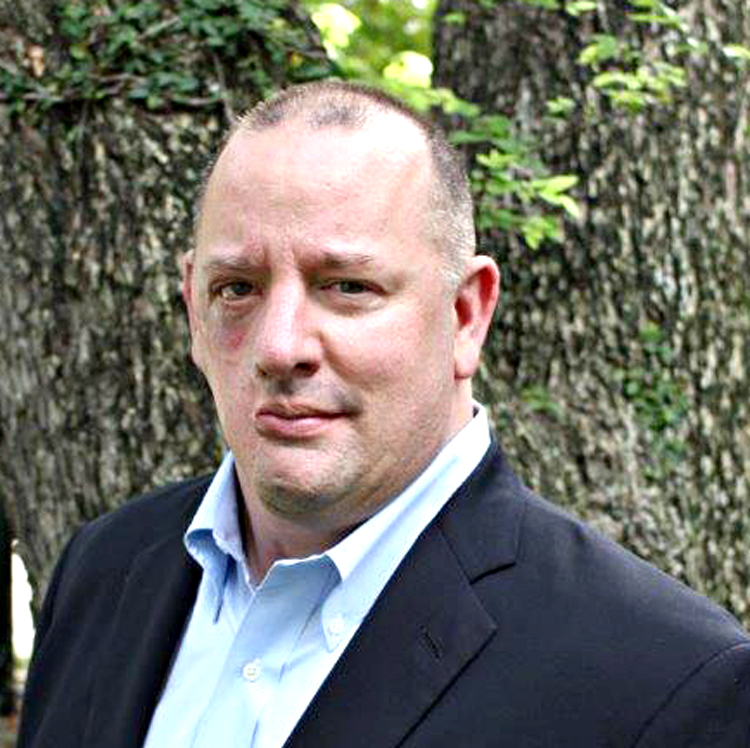
Judges Simoneaux and Cox Bring the Probate Courts Into the Modern Era
(but still endure old-fashioned homophobia while doing their jobs)
At the very end of your Harris County ballot are a bevy of races to elect county judges. Many voters hardly understand what the function of each of the courts are, let alone the candidates running for them. However, it’s these races such as the contests for openly gay, incumbant probate court judges Jerry Simoneaux, 56, and Jason Cox, 51, that touch directly on the lives of citizens in some of the most personal ways.

“Probate Courts serve families coping with death, disability, and mental health issues. Since death, disability, and mental health are indiscriminate, we see people from every corner of Harris County. These issues also occur without regard to a pandemic, so we had no choice but to continue our dockets through some of the most challenging times [during COVID].” explains Simoneaux.
Elected in the Harris County blue wave of 2018, Simoneaux and Cox have had a significant impact on the effectiveness and efficiency of the courts. Together they have spearheaded technological advancements that allowed them to pivot quickly to remote proceedings when the pandemic hit in early 2020. In fact, their courts had already implemented remote technology long before the pandemic shut down the world.
“We were the first courts to implement remote video proceedings—6 months before COVID. We were able to shift from in-person to all-online in one week and never, not once, have we experienced a backlog, even though cases rose exponentially during that time.” says Simoneaux.
“The initiative to upgrade the technology in the probate courts began about two and a half years ago and was spearheaded by Judge Simoneaux. Having this technology already in place allowed our courts to continue hearing cases without significant interruption. We’ve also discovered that the new technology, particularly the remote-use technology, is particularly well-suited to probate courts. Oftentimes, probate proceedings involve witnesses who have difficulty traveling to the courthouse. They may be elderly, disabled, or living in a different area of the country (or world). With this technology, these witnesses can appear in a more efficient manner. On the mental health side, the remote-use technology has enabled patients to appear from their hospitals without having to travel to court; it’s also allowed doctors to testify from their offices. This has saved time and costs, and increased participation.” says Cox.
Probate courts are of particular importance to LGBTQ people. According to Simoneaux, their courts have authority to determine whether a deceased person was lawfully married, either through ceremonial marriage or an informal marriage, sometimes called a “common law marriage”. Obergefell declared prohibitions against marriage for same-sex couple unconstitutional in 2015. That declaration can be construed to mean these prohibitions were void from the beginning, making it plausible for some parties who may argue that a same-sex marriage began before 2015.
Because probate judges like Simoneaux and Cox also have jurisdiction over some issues pertaining to mental health, they actually have two court rooms, one in the Harris County Civil Courthouse and one in the Harris County Psychiatric Center.

“We have a staff of twenty and are one of the largest courts in Texas by size and caseload. If you find yourself in a probate court, you’re probably going through one of the most difficult times in your life. A loved one may have died or be suffering from addiction or mental illness; your family may be struggling with providing care for a member who may no longer be able to take care of themselves.” says Cox.
Cox has also helped reshape how the courts deal with issues around mental health. His Assisted Outpatient Treatment (AOT) program recently received a $2.7 million, four-year grant. Like its title says; it is an outpatient treatment program for persons suffering from mental illness. It represents a partnership between the court, UTHealth, the Harris Center, and the University of Houston. It has become one of the most successful programs of its kind in Texas.
“We now have other courts in Texas sending teams to Harris County to learn how to implement this kind of program.” says Cox.
Simoneaux and Cox are also examples of how representation matters in every elected office, up and down the ballot. Some of the controversies decided in probate court touch on the very dignity of a person’s existence such as protecting a person’s right to be addressed by their preferred pronouns, especially a ward who is being placed in guardianship. Another issue these judges have seen.
“As a member of the LGBTQ community, I have particular insight into the struggles of our community members in court. I meet those challenges head-on. Pronoun preference is enforced, gender identity and sexual orientation are respected. I ensure that all members of our community feel safe and heard.” says Simoneaux.
Unfortunately, the judges own gay identity is often attacked. In recent weeks, someone representing themselves as Simoneaux’s former opponent Loyd Wright, sent emails to Outsmart magazine that said “I am concerned for the future. This country is going down morally. We have homosexuals [Judge Jerry Simoneaux] in our courts trying to make sinful choices for us. I hear illegal Mexicans are working in our courts too. We need to make our country great again AGAIN.” [sic].
“Those emails did not come from my opponent. I reached out to him and he immediately condemned them.” assures Simoneaux. “Folks who attack me based on my identity with a certain group are desperate. They cannot attack my record, so they attack me personally.”
Both Simoneaux and Cox appear on the ballot on November 8. They will likely be located near the bottom of the ballot, but their importance to the community certainly rises to the top.











